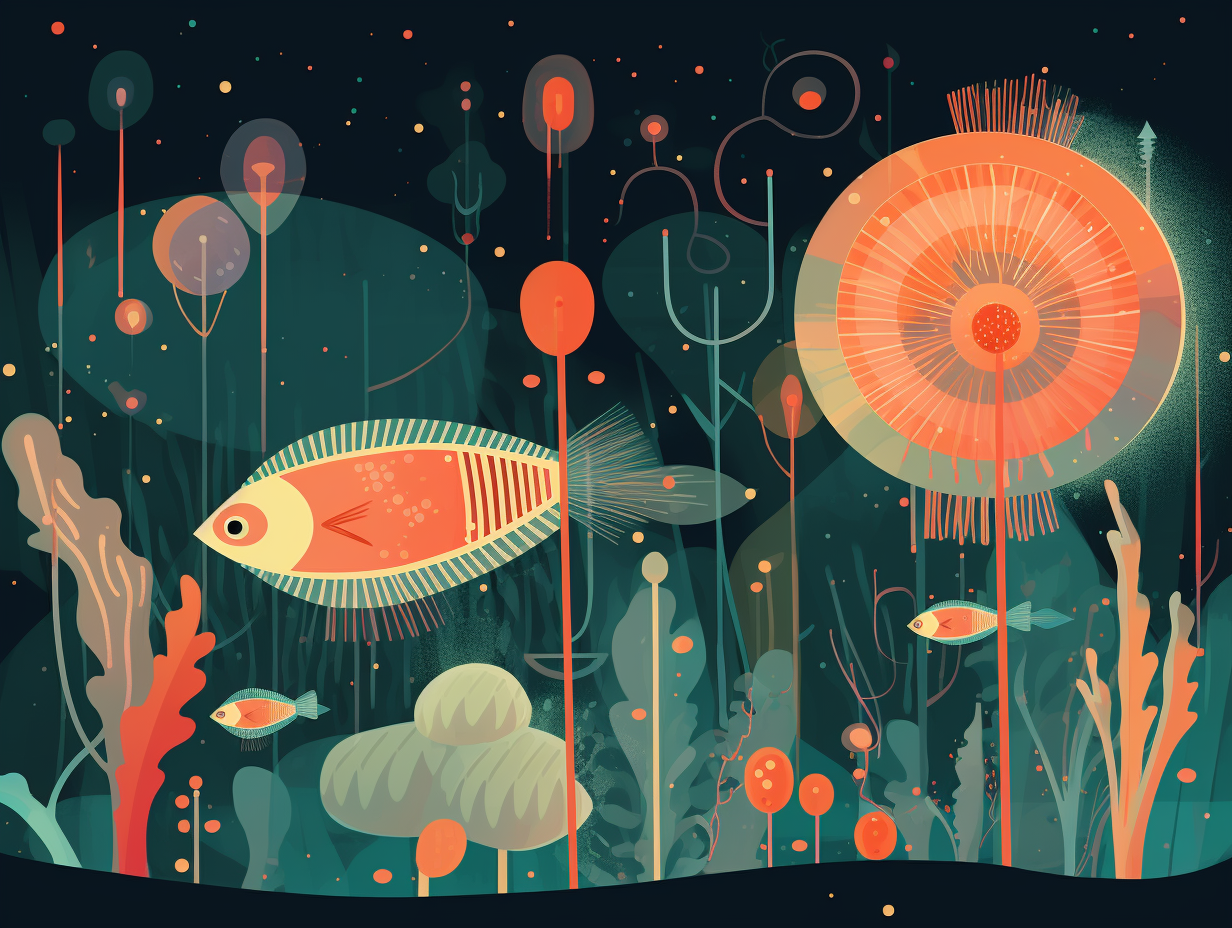Discover the Dark Side: Top 8 Astonishing Toxicology Fun Facts You Never Knew

1. No Cyanide Calamity in Apple Seeds
Feeling guilty about swallowing an apple seed? Fear not, it wasn't the cyanide-laced cherry on top of your calamity cake: Apple seeds contain amygdalin, a cyanogenic glycoside that only transforms into the highly poisonous hydrogen cyanide when seeds are crushed or chewed. Consuming a couple of whole, unbroken seeds isn't harmful, as the human body can process small doses of cyanide. You'd need to munch on 150 to several thousand crushed seeds from various apple varieties to be at risk of cyanide poisoning – which is quite an absurdly dedicated apple core session!
Source => britannica.com
2. Stonefish: The Venomous Handshake
In a painful twist on the Fisherman's Friend lozenge, the stonefish offers a venom with pizzazz that makes it anything but a pal's handshake underwater: Its venom contains verrucotoxin, a lively protein that modulates Ca2+ channel activity and leads to symptoms like intense pain, respiratory weakness, convulsions, and even death – all of which can be mitigated to some extent by the heroic duo of propranolol and CGP20712A, β-adrenoceptor antagonists you'd want on your side in this aquatic debacle.
Source => ncbi.nlm.nih.gov

Did you know your liver has the amazing ability to regenerate itself, much like a magical phoenix? Discover more about this incredible organ and its heroic feats! ✨🔥
=> Fun Facts about The-Liver
3. Botox: Portrait of a Miracle Toxin
Step right up and discover the magic of Botox, the miracle juice that can make your face as expressionless as a Victorian-era portrait: Botox, also known as botulinum toxin, is one of the most toxic substances known to humankind, but when used in minuscule, controlled doses under medical supervision, it can treat a variety of issues like chronic migraines, spasmodic muscles, and even give you that highly coveted youthful glow!
Source => ncbi.nlm.nih.gov
4. Liver, the Overworked Toxin Juggler
If the liver were an employee, it'd surely be on the board of directors for "Juggling Toxins Incorporated": working overtime dealing with pollutants, pesticides, cigarette smoke, recreational drugs, and medication. In fact, the liver processes pretty much everything we consume, inhale, or put on our bodies! This industrious organ handles toxins in various ways - breaking them down, excreting them via bile, or even storing them like a secret stash of junk food - but beware - if there's too much stashed away, its storage closet may overflow, particularly in individuals with hepatitis C. So, be kind to your liver; it's working hard enough already!
Source => hepctrust.org.uk

5. Fugu: Deadly Delicacy Roulette
Talk about a risky bite: Dining on fugu is like playing Russian roulette with your sushi! The Japanese pufferfish is more poisonous than cyanide if not prepared correctly, due to its organs containing tetrodotoxin. Fear not, as licensed chefs undergo rigorous training and strict regulations ensure safe consumption. Some even pickle fugu ovaries for three years to reduce toxin levels, with toxicity inspections conducted before sale. So enjoy this deadly delicacy in Japan and Korea, but remember, life's no party when poison's invited!
Source => elitehavens.com
6. Caffeine: Dance with a Stimulating Temptress
Careful not to spill the beans, but we've all been dancing with a temptress known as caffeine: In the US, 85% of adults and 73% of children indulge in at least one caffeinated beverage daily, making caffeine the most consumed stimulant drug globally. Fortunately, our daily java jive rarely leads to any health hiccups, and only severe cases of caffeine toxicity, often mixed with other substances, result in medical emergencies.
Source => emedicine.medscape.com
7. Renaissance Arsenic Antics
Well tickle my tibia and call me 'Arsenic Annie': Arsenic, a seemingly everyday item during the Renaissance, served as the go-to poison for committing murders and suicides, catering to cutthroats and despondents alike!
Source => wcponline.com
8. Socrates' Slow Hemlock Hype
Hemlock and load, folks: the plant that famously took out old Uncle Socrates might not be as toxically talented as once thought! While it's true that hemlock contains piperidine alkaloids that can cause neurological symptoms — like ataxia, tremors, and increased salivation — and even respiratory failure, muscle weakness, and acute renal failure in severe cases, death isn't always a given, and the lethal effects might not materialize as swiftly as you'd expect. So, if you end up in a Greek tragedy of your own, don't worry too much — treatment usually involves supportive care and keeping a watchful eye on your vital signs and lab tests.
Source => ncbi.nlm.nih.gov
Related Fun Facts




















